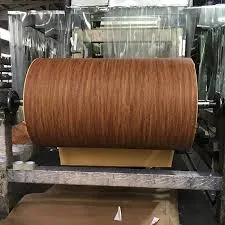- Home
- Guidelines for Furniture Exporters to Initiate Contact and Build Partnerships
Dec . 09, 2024 17:48 Back to list
Guidelines for Furniture Exporters to Initiate Contact and Build Partnerships
Understanding the Importance of Contact Papers for Furniture Exporters
In the realm of international trade, particularly in the furniture industry, the significance of maintaining transparent, organized, and efficient communication cannot be overstated. This is where contact papers come into play. Contact papers serve as a crucial tool for furniture exporters, facilitating interactions with clients, suppliers, and regulatory bodies. This article delves into the roles, benefits, and best practices associated with contact papers in the context of furniture exportation.
What are Contact Papers?
Contact papers, often referred to as contact lists or databases, are structured documents that compile vital information about numerous contacts linked to the business—ranging from manufacturers and suppliers to clients and logistics partners. These documents often include names, phone numbers, email addresses, company names, and relevant details about the nature of the business relationship.
Why are Contact Papers Crucial for Furniture Exporters?
1. Streamlined Communication A well-organized contact paper ensures that all necessary contacts are readily available at one's fingertips. For furniture exporters, which often operate in a dynamic and fast-paced environment, effective communication is essential for timely responses, negotiations, and updates.
2. Enhanced Networking Opportunities The furniture industry thrives on relationships. Contact papers facilitate networking by helping exporters connect with interior designers, architects, and wholesalers, thereby opening up new avenues for collaboration and expansion.
3. Improved Management of Business Relationships By maintaining a comprehensive database of contacts, furniture exporters can manage their relationships effectively. They can track interactions, follow up on inquiries, and nurture leads, all of which contribute to building trust and loyalty among clients and partners.
4. Crisis Management and Quick Response In a global market, unexpected issues can arise, such as shipping delays or regulatory changes. Having a well-organized contact paper allows exporters to quickly reach out to relevant contacts to address these issues promptly, minimizing disruption to business operations.
5. Regulatory Compliance Given the complex nature of exporting, furniture exporters must often liaise with regulatory bodies and compliance experts. Contact papers can include contacts for legal advice and documentation services, ensuring that exporters remain compliant with both local and international regulations.
contact paper for furniture exporters

Best Practices for Maintaining Contact Papers
To harness the full potential of contact papers, furniture exporters should adopt several best practices
1. Regular Updates Contact information can change frequently. It’s vital to keep the contact paper up-to-date to avoid miscommunication. Regular reviews and updates should be scheduled, ensuring that all entries remain accurate.
2. Categorization Organizing contacts into categories (e.g., suppliers, clients, regulatory bodies, etc.) enhances usability. This makes it easier to locate specific contacts when needed, especially during busy periods.
3. Incorporation of Additional Information Beyond basic contact details, exporters should consider adding notes about past interactions, preferences, and key dates (like contract renewals) to enrich the context of each relationship.
4. Utilizing Technology Digital tools and cloud-based applications can streamline the management of contact papers. Features like search functions, sharing capabilities, and backup options can significantly enhance the efficiency of contact management.
5. Training and Accessibility Ensure that team members who interact with the contact paper are trained in its use. Encourage collaboration by providing access to the database for those who need it, which fosters a culture of communication within the company.
Conclusion
In conclusion, contact papers are an indispensable resource for furniture exporters navigating the complexities of international trade. By fostering effective communication, enhancing networking opportunities, and improving management of business relationships, contact papers ultimately contribute to the growth and success of furniture exporting enterprises. By following best practices in maintaining these documents, exporters can fully leverage the power of their networks, ensuring that they remain competitive and agile in a constantly evolving market.
Latest news
-
High-Quality Bathroom Cabinet Contact Paper – Durable & Stylish Leading Suppliers, Exporters, Manufacturers
NewsJul.08,2025
-
Premium Wood Contact Paper for Desk – Reliable Suppliers & Exporters
NewsJul.08,2025
-
Premium Contact Paper for Table Top – Durable & Stylish Surface Solution from Leading Manufacturer
NewsJul.07,2025
-
Duplex Board with Grey Back - Reliable Supplier & Competitive Price Manufacturer & Exporter
NewsJul.07,2025
-
Premium White Contact Paper on Cabinets – Trusted Exporters & Suppliers
NewsJul.06,2025
-
High-Quality Duplex Board Packaging for Food Reliable Manufacturer & Supplier
NewsJul.06,2025

